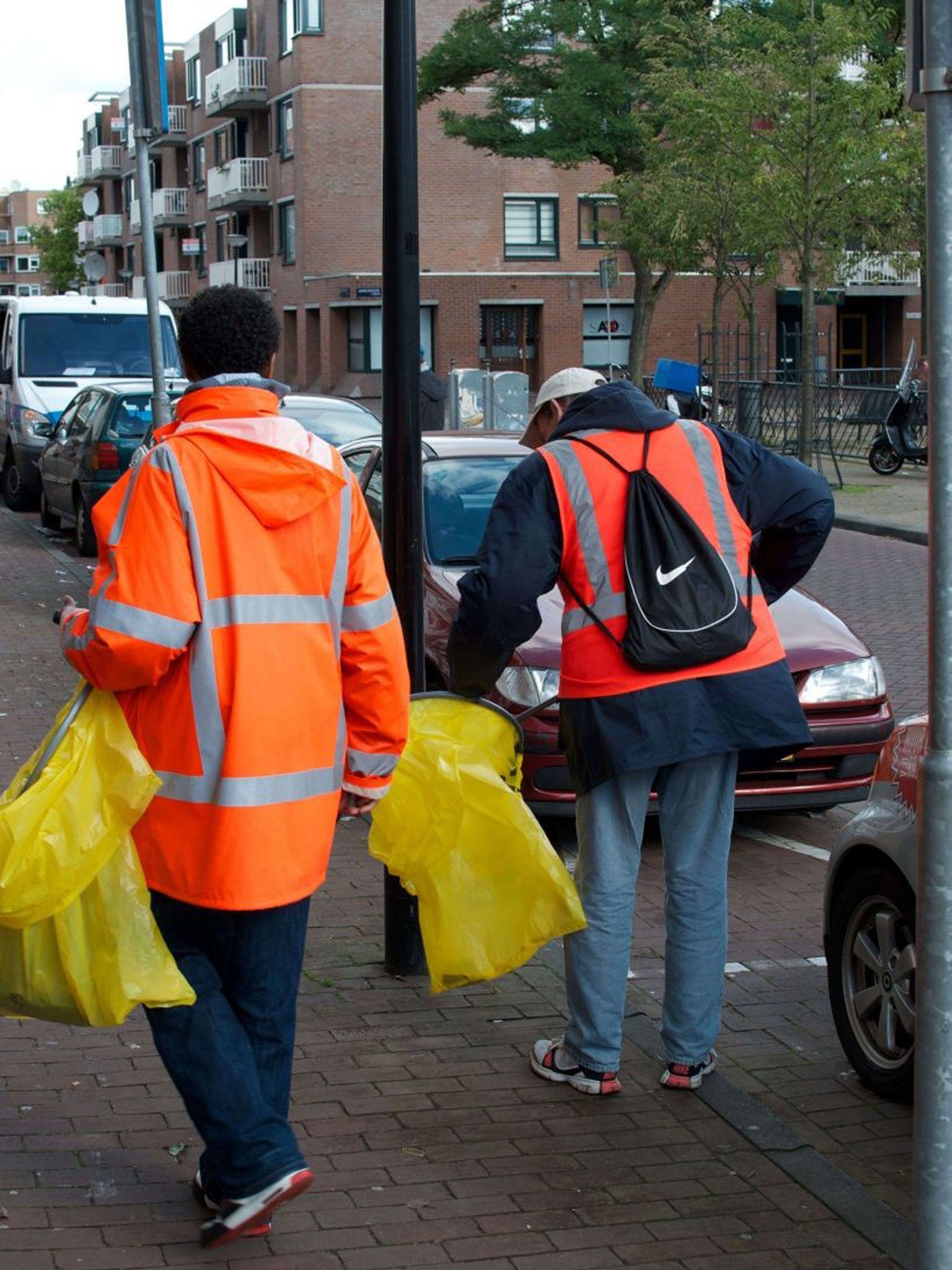Amsterdam employs alcoholics as street cleaners and pays them in beer
Charity working in the city – renowned for its ‘pragmatic’ approach to substance abuse – says scheme keeps the alcoholics occupied and out of trouble

Amsterdam has launched a government-funded scheme which uses chronic alcoholics as street cleaners – and pays them in beer.
The project, organised by the Rainbow Foundation charity and paid for by Dutch state subsidies and donations, rounds up alcoholics who have been “causing a nuisance” in parks and puts them to work.
They clean three days a week, from 9am to around 3.30pm, and are paid €10 (around £8), five cans of beer and half a packet of loose tobacco per shift.
The alcoholics are split up into groups of 10, and their beer consumption is carefully monitored.
“The aim is to keep them occupied, to get them doing something so they no longer cause trouble at the park,” the charity’s chief executive Gerrie Holterman told the AFP news agency.
“This group of chronic alcoholics was causing a nuisance in Amsterdam's Oosterpark: fights, noise, disagreeable comments to women,” she said.
The workers are given two cans of beer and coffee if they want it at the start of the day, followed by another two cans and a hot meal at lunch.
One alcoholic, named Frank, told an AFP reporter: “I think I can speak for the group and say that if they didn't give us beers then we wouldn't come.
“We need alcohol to function, that's the disadvantage of chronic alcoholism,” the 45-year-old said.
Frank said the added structure to the alcoholics’ lives “is good for us”. But he was under no illusions as to whether or not the scheme would serve to wean the workers off drink.
“Of course we drink in a more structured way, but I don't think that we drink less,” he said.
“When we leave here, we go to the supermarket and transform the €10 euros we earned into beers.”
On the four days his group is not working, Frank added, nothing seems to have changed. “When the supermarket opens at 8:00am, we're the first there so we can get some drinks,” he said.
Join our commenting forum
Join thought-provoking conversations, follow other Independent readers and see their replies
Comments